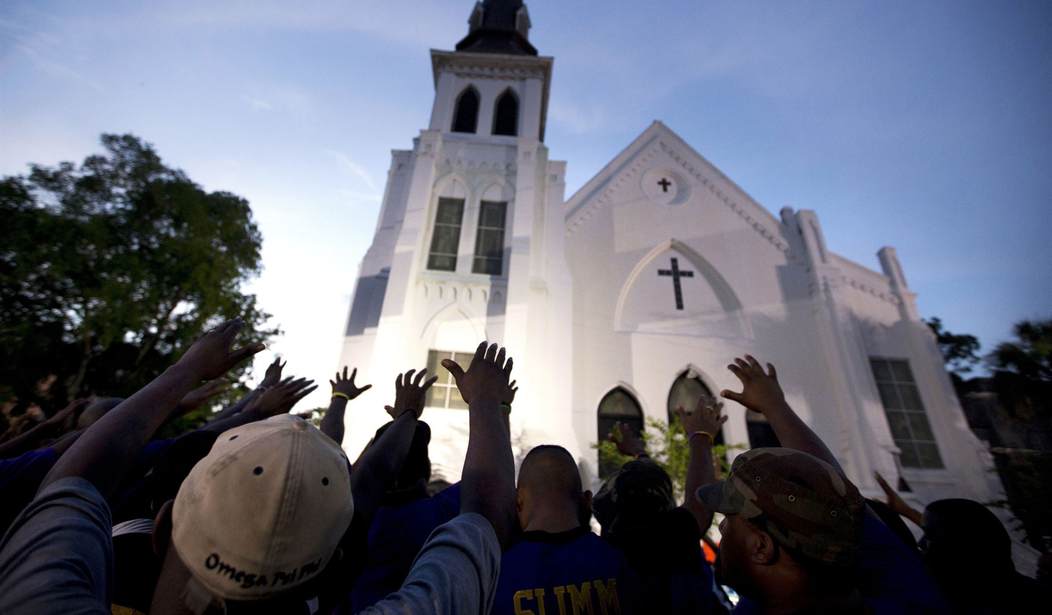Top News
Shocker: Black Americans With More Money Are Happier

With all of the insane nonsense unfolding around the country and the world these days, it would be surprising to find that any of the major polling companies would run out of topics to ask people about. But that may have been the case at Pew Research last month when they decided to poll Black Americans to find out whether or not they were “happy.” Perhaps unsurprisingly, the majority of respondents said that they were at least somewhat happy and they listed things that provided them with “joy and fulfillment” that are almost certainly common across racial lines. Family, friends, faith, and travel were all high on the list. But in perhaps the least “shocking” discovery of all, the survey found that it’s easier to be happy if you have more money. Try not to be knocked over by a feather after reading that factoid. (NBC News)
Black Americans say they find joy and fulfillment in spending time with family and friends, their faith and traveling, according to a Pew Research Center analysis published Thursday.
Nearly 4 in 5 Black adults across all socioeconomic levels say they get a great deal or fair amount of joy or fulfillment from spending time with loved ones. Two-thirds said the same for spiritual or religious practices, and over half said the same for traveling. However, activities that can cost more, such as travel or creating and experiencing the arts, can be difficult for lower-income Black Americans to access.
“This is part of our deep dive into the Black experience, and one of the things that we know about Black adults is they have one of the largest intraracial income inequality gaps,” said Pew research associate and study author Khadijah Edwards.
Even with all of the crime, inflation, and social unrest unfolding across the country, I would imagine that most of us who aren’t homeless or in jail can find some degree of joy or happiness in our lives. I know that aside from some nagging health issues, I have more things to be thankful for than I could count and I would feel like an utter fool if I went around complaining all of the time. My wife, our pets, our friends, and our community are all blessings that I try to never lose sight of.
Is it really all that surprising that Black Americans would largely feel the same way? These are common experiences that nearly all of us share. As far as the income disparity statistics go, that too should be obvious. An old saying reminds us that money can’t buy happiness, but it certainly makes being miserable a lot more fun. Unwise use of money can obviously lead to problems, but having access to more financial resources provides people with more options, including entertainment choices. That probably doesn’t equate directly to “happiness,” but I have experienced periods of being nearly broke when I was younger and just getting out of the military and having a far more secure income situation as I grew older. I can assure any of you who are just starting out that it’s easier to feel joyful when you’re not worrying about where your next meal will come from or where you’re going to sleep the next night.
That concept lines up well with the findings in the Pew survey. They report that 76% of Black adults with higher incomes said they enjoy traveling, compared to 64% of those with middle incomes and 48% with lower incomes. Again… is anyone remotely surprised by this? Traveling costs money, particularly given the current state of the economy. People who can barely afford to pay for their groceries are not planning trips to a mountain chalet. But that doesn’t mean that they still can’t find joy in spending time with their family and friends or be grateful for the food they manage to put on their tables.
In the conclusion to the linked analysis, the commonality I mentioned above is underscored. Respondents listed the same three activities – spending time with loved ones, faith, and travel – “regardless of their income.” That just seems more than obvious. I would argue that the phrase “regardless of their race” would apply as well, but I suppose that would undercut the original purpose of the survey.
Read the full article here


















